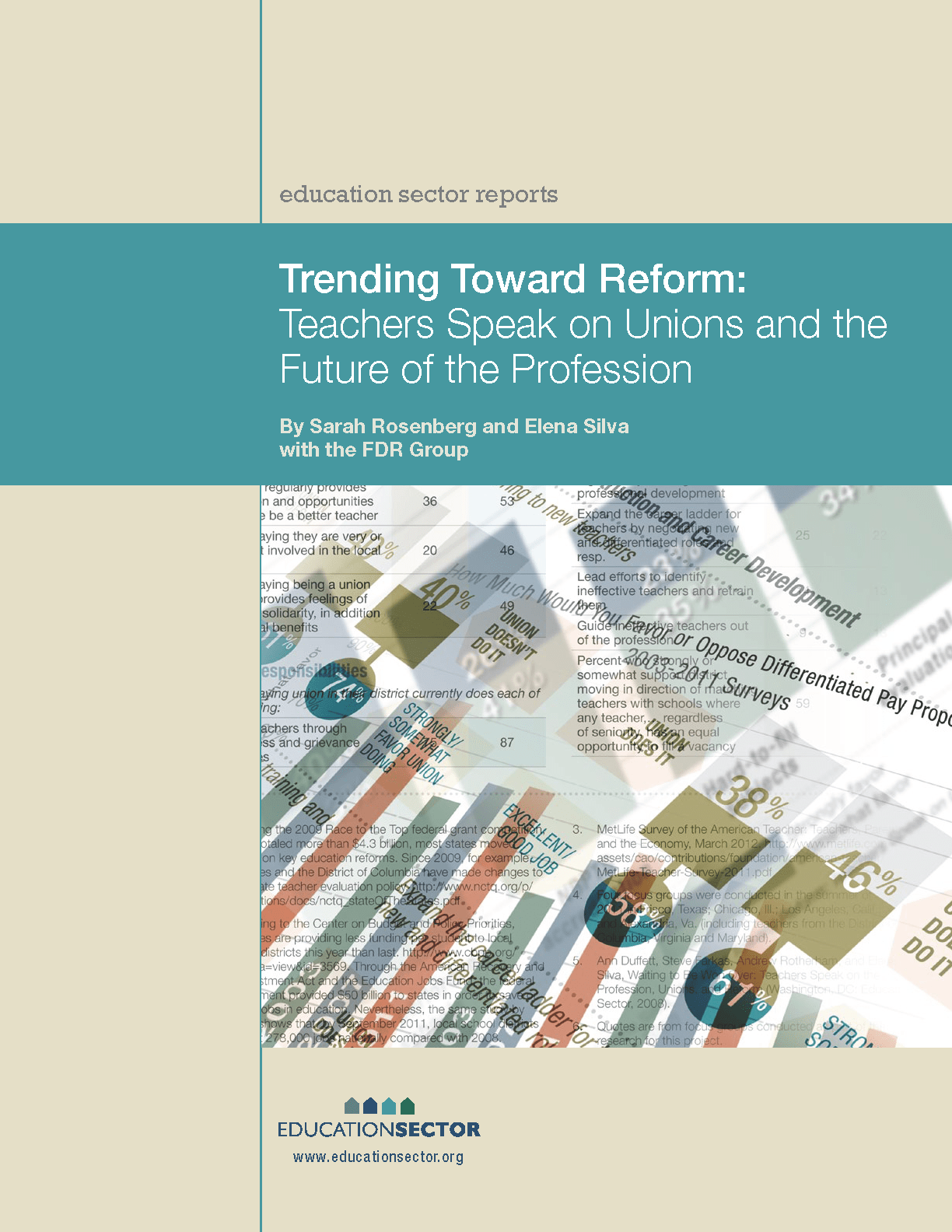
In his seminal (and fundamentally depressing) 2011 book Special Interests, Terry Moe argues that so-called “reform unionism” is a dreamy “have-your-cake-and-eat-it-too vision of the future that flatly misunderstands the fundamentals of union behavior.” Teacher unions, he explains, will forever be Aesop’s oak—structurally resistant to education reform. This latest report from Education Sector surveyed 1,000-plus teachers for their opinions on the condition and role of unionism in U.S. education—as well as their thoughts on teacher policy overall. (This is the third such survey, the first having been conducted in 2003 by Public Agenda, the second by Education Sector in 2007.) Per unions: They are still considered highly by teachers, with three-quarters of all educators (and 70 percent of newbies—those teaching less than five years) reporting that working conditions would be worse without the unions. Levels of pride and involvement in unions are up, too: Since 2007, local unions saw a 10 percentage-point bump in teachers’ reporting that the “union provides feelings of pride and solidarity,” to 41 percent. And how teachers would like their unions to handle education reform is shifting—from Aesop’s steadfast oak to the fable’s malleable reed. Teachers would like to see unions be more involved in formulating evaluation systems and dismissing ineffective educators. This, as a majority (54 percent) of educators agree that growth models are a good way to evaluate teachers (up from 49 percent in 2007). (Though in the minority, teachers whose evaluations already utilize growth models are much more likely to favor this approach—by 18 percentage points.) Ultimately, the report concludes that union viability hinges on whether these entities can maintain a cooperative and reform-minded role. The authors seem to think this is possible. Possible, yes. But highly improbable.
SOURCE: Sarah Rosenberg and Elena Silva, Trending Toward Reform: Teachers Speak on Unions and the Future of the Profession (Washington, D.C.: Education Sector, July 2012).
